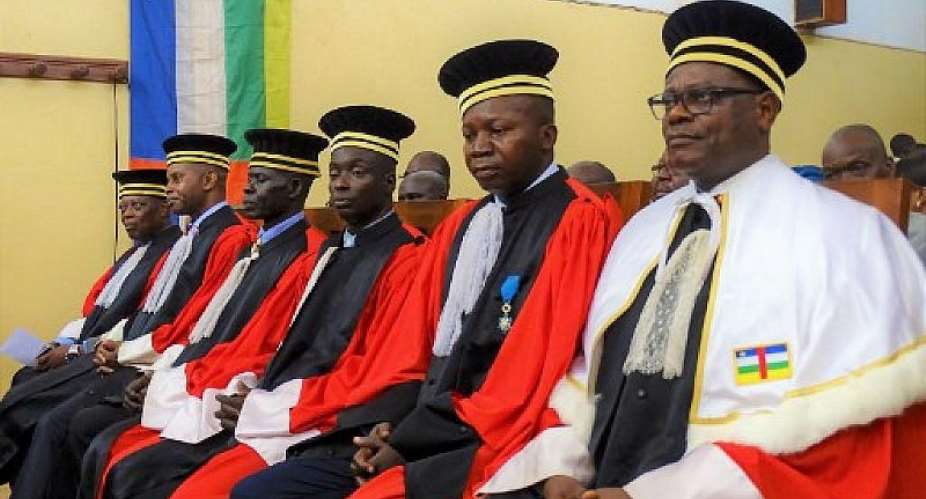Central African Republic's Special Criminal Court is deciding which cases it will begin hearing, eight months after its inauguration in Bangui. The cases include human rights abuses and violations of international humanitarian law – including war crimes and genocide – committed since 2003.
"By the end of next year, the examination of the first cases could end and result in trials," court president Michel Louanga said during a news conference.
The UN and European Union-backed court was inaugurated eight months ago to look into abuses in the Central African Republic, considered one of the most unstable countries in the world.
Prosecutor Toussaint Muntazini said the court has instituted three cases, while four other cases are in their beginning stages. No specifics on what cases are being examined have been revealed, however.
"Given the sensitive nature of the investigations as well as the unstable nature of security throughout the national territory, the highest level of confidentiality is needed," said the court.
"Those who have committed bloody crimes must appear before national and international justice," said Justice Minister Flavien Mbata.
Twenty-five judges will preside over the court, including 13 Central Africans and 12 foreigners. The UN and EU created the 61 million euros budget for the court.
Although the former French colony had already been unstable since longtime president Francois Bozize came to power through a 2003 coup d'etat, after he was deposed in 2013 by Seleka rebels, reports of human rights abuses grew.
The UN published a report in 2017 that characterised some of “the most abominable kind” of crimes, carried out between 2003 and 2015 by various rebel groups throughout the country.
A breakthrough earlier this year was the eighth peace deal since 2013, signed by 14 armed groups in Khartoum, Sudan.
The country has been at the mercy of armed groups who are aiming to control the gold, diamond, and oil resources, causing widespread internal displacement of more than 650,000 people. After a period of internal displacement, some 27,000 people have fled to neighbouring countries, including Chad.





 'Ghana beyond aid' has turned out to be 'Ghana without compass' – Naana Opoku-Ag...
'Ghana beyond aid' has turned out to be 'Ghana without compass' – Naana Opoku-Ag...
 Nation builder Mahama will deliver on his promise of a 24-hour economy for the b...
Nation builder Mahama will deliver on his promise of a 24-hour economy for the b...
 Prof Jane Naana is more than qualified to be Ghana’s first vice president and ev...
Prof Jane Naana is more than qualified to be Ghana’s first vice president and ev...
 WENDA petitions Akufo-Addo, Speaker of Parliament to make vote-buying illegal
WENDA petitions Akufo-Addo, Speaker of Parliament to make vote-buying illegal
 Supreme court declares payment of wages to spouses of President, Vice President ...
Supreme court declares payment of wages to spouses of President, Vice President ...
 Publish full KPMG report on SML-GRA contract – Bright Simons to Akufo-Addo
Publish full KPMG report on SML-GRA contract – Bright Simons to Akufo-Addo
 Kumasi International Airport to begin full operations by end of June
Kumasi International Airport to begin full operations by end of June
 Election 2024: Our ‘real challenge’ is getting ‘un-bothered’ youth to vote – Abu...
Election 2024: Our ‘real challenge’ is getting ‘un-bothered’ youth to vote – Abu...
 [Full text] Findings and recommendations by KPMG on SML-GRA contract
[Full text] Findings and recommendations by KPMG on SML-GRA contract
 Renegotiate SML contract – Akufo-Addo to GRA, Finance Ministry
Renegotiate SML contract – Akufo-Addo to GRA, Finance Ministry
